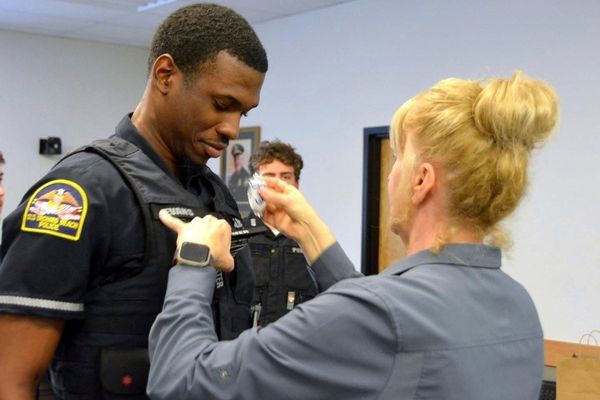Ever see someone else cash in on a business idea you thought of years ago? That can happen when you don't try to bring your "light bulb" ideas and creativity to life.
Good ideas slip away for a number of reasons. But thoughts of self-doubt and fears playing in our head often prevent us from taking the action needed to capitalize on good ideas.
"Discussion about creativity is focused around how to come up with brilliant ideas, yet ideas — even great ideas — are not in short supply," said Zorana Ivcevic Pringle. She's a senior research scientist at the Yale Center for Emotional Intelligence, and studies creativity from inception to reality.
If not developed, every creative idea remains little more than a fantasy, she said.
Creativity Takes Courage
"Creativity is hard work," wrote Pringle, the author of "The Creativity Choice: The Science of Making Decisions to Turn Ideas into Action." "The process of creative work includes times of discomfort and doubt and frustration. It takes persistence in the face of obstacles."
Creativity and bringing ideas to life is a choice. It can involve financial and psychological risk, "but it also includes times of great excitement and joy," she said.
Put Problems Under The Microscope To Bring Ideas To Life
Pringle says we are asking the wrong question when we focus on how breakthrough ideas come to be. "Instead of saying and thinking 'Don't bring me problems, bring me solutions,' try 'Let's examine the problems,'" she said.
Albert Einstein wrote that understanding the problem is more essential for creativity than focusing on solutions.
Einstein observed that successful problem-solving teams spend more time on exploring problems than coming up with solutions. Over 50% of their work time is devoted to summarizing the problem, framing it in different ways and exploring disagreements.
"Once the problems are examined from different perspectives, new solutions emerge too," Pringle said.
Change Mindsets About Creativity
Surrounding yourself with talented, ambitious people usually adds fuel to the creative process, too.
"But great talent alone isn't enough — teams and people also need to overcome psychological barriers that prevent bold action," said Brian Froehling. He's the chief revenue officer at WEKA, an AI data storage company.
He's found that talented teams and executives often carry the weight of prior setbacks and failures. "The human brain is preprogrammed to remember negative things far more profoundly than positive things, primarily as a survival instinct," Froehling said. "But that survival instinct can be a real barrier in business."
Froehling coaches his team and leadership peers to shift how they approach opportunities. "Cultivating the mindset of 'How do I win the optimal deal?' versus 'I just can't lose the deal' has been transformational for our ability to get things done," he said.
You can have a great idea for a product and put in the work to bring it to market. But you still have to identify an audience for the new product. Sales are part of the creative biosphere.
Stir The Emotional Cauldron
Big ideas are exciting, but the real magic happens when nebulous ideas turn into concrete results by taking action.
And action requires a team of members who feel connected. "That starts with empathy," said Allison Varone. She's the head of marketing for Campari America, a spirits maker.
"Bringing more empathy into your work life can only bring good to others as well as more career success," she said. "Each day, I try to check in with someone I work with and ask, 'How are you doing?'"
That small moment of connection "creates trust, and trust creates momentum," Varone said. "When people feel seen and supported, they're far more likely to bring their own ideas forward and to help execute yours."
"It's that combination of empathy, long-term thinking and disciplined follow-through that turns a big idea from inspiration into real-world impact," she said.
Remember The Nuts And Bolts: Execution
Becca Toth, chief marketing officer at Hyland, a digital marketing firm, says she hears a lot of big, ambitious ideas. And she's learned that "even the most innovative concepts fail without a clear execution framework."
Toth says bringing ideas to life must include what she calls "idea accountability." Idea accountability assigns ownership to specific people for the tasks and milestones necessary to accomplish a goal.
"I've seen how idea accountability can bring innovation to life firsthand," she said.







